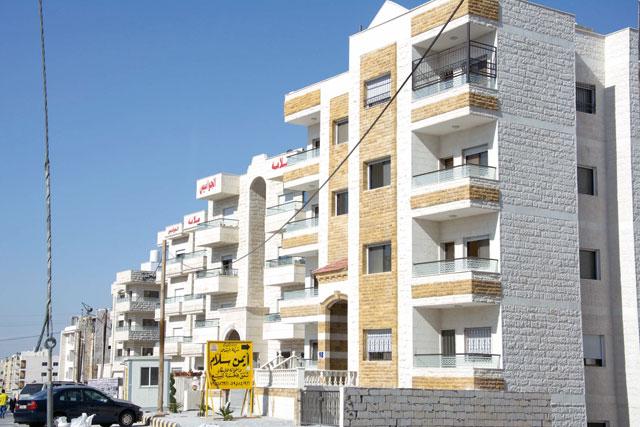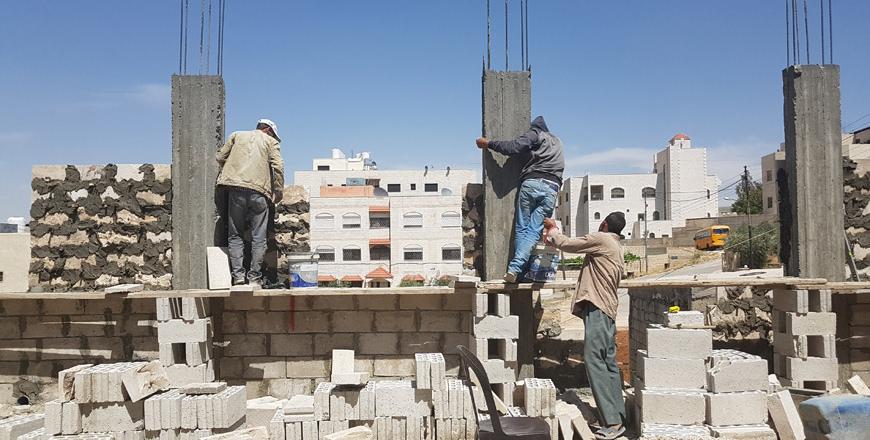You are here
‘New building by-law negatively affects housing sector investments’
By Mohammad Ghazal - Mar 08,2018 - Last updated at Mar 08,2018

A recent photo of a building under construction in Amman. Housing develpoers on Wednesday says endorsement of a new building by-law affect troubled sector (Photo by Amjad Ghsoun)
AMMAN — Housing developers on Wednesday slammed the endorsement of the building by-law which will soon go into effect, saying the move will affect the sector which "employs tens of thousands of Jordanians".
Zuhair Omari, president of the Jordan Housing Developers Association (JHDA), said the building by-law will negatively affect investments in the "ailing" sector.
"The by-law was published in the Official Gazette last week and is scheduled to go into effect in 60 days. We believe this by-law will lead to negative consequences," Omari told The Jordan Times on Wednesday.
Under the current by-law, the housing apartments must be at least 110 square metres in classifications B, C and D, and 130 square metres in classification A, which, Omari said, would limit buyers’ options.
"Under the by-law, we can not build small apartments anymore although the demand in the market is on apartments that are less than 120 square metres," he said.
"Buyers prefer smaller apartments; they are cheaper and, as investors, we know what works for the business and we know what the demand is. A large percentage of buyers do not need large apartments," Omari said.
He added that 32 per cent of Jordanians who bought apartments in 2017 chose apartments that are smaller than 120 square metres.
The new by-law stipulates having two parking spaces for each flat that is 150 square metres or more, according to Omari.
"This is also illogical as it means we will be able to build fewer apartments in one building although the prices of land plots rose sharply over the past years," he added.
Officials at GAM were not available for comment despite repeated attempts over the past few days by The Jordan Times.
Omari, who said there are 3,400 companies registered with the association, added that the sector is witnessing a sharp decline in demand.
Trading last year reached around JD6 billion, which is a 14-per cent drop compared to 2016.
"Investors are heading to other countries where laws are more flexible and there are more incentives," he added.
An owner of a housing company, who preferred anonymity, echoed similar remarks.
"I moved a large amount of my investment capital to housing in Turkey and Saudi Arabia as the demand there is higher and the laws allow for more flexibility," the owner told The Jordan Times on Wednesday.
"We do not want incentives here, but we do not need by-laws that complicate the situation and make our job more difficult," he said on Wednesday.
Related Articles
AMMAN — Housing developers on Sunday said they will resort to escalatory measures to protest against the 2018 building by-law.Zuhair Omari,
AMMAN — Housing developers will hold a week-long work strike to be followed by a sit-in to protest the recently endorsed building by-law, wh
AMMAN — Housing investors have protested the Greater Amman Municipality’s (GAM) endorsement of the 2017 building by-law before the conclusio













